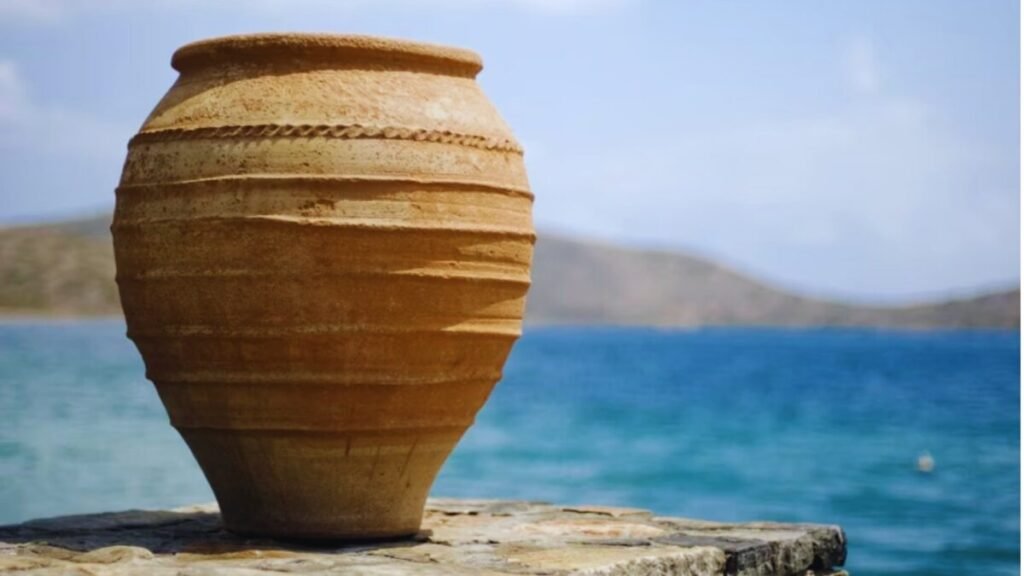An Earthly Creation with the Power to Revolutionize Clean Water Access in Areas Without Electricity

In a world where more than 2 billion people lack access to clean water, each new solution becomes a spark of hope. In this case, the proposal doesn’t come from a high-tech laboratory, but from the imagination and craftsmanship of a young French designer determined to make a difference.
## A Design Inspired by Necessity
Tanguy Delaunay-Belleville, a student at the Burgundy School of Applied Arts, conceived his invention in Martinique, his native island, where access to clean water is a challenge despite being surrounded by the sea. The answer was “Aquavessel,” a low-tech portable desalinator made of terracotta, capable of producing drinkable water without relying on electricity or complex installations. The vessel, with a one-liter capacity, is made using a semi-industrial molding technique that allows for large-scale production while also promoting the local economy and craftsmanship. Its design consists of two refractory ceramic containers and a conical lid, optimized to distill seawater using heat from simple sources like fire, gas, or solar panels.
## How it Works and Why it’s Different
The process is simple: seawater is heated in a central container, generating steam that condenses and flows into a second compartment, free of salt and microorganisms. The key to Aquavessel’s success lies in its heat resistance and lack of need for electricity, making it an ideal tool for remote or crisis-stricken communities. Unlike industrial desalination systems, Aquavessel doesn’t require costly infrastructure or hard-to-source materials. In addition to producing clean water, it promotes local development by supporting pottery craftsmanship, creating jobs, and reducing dependence on centralized systems.
## From University Idea to Global Project
The invention has already been selected for the Global Grad Show and won the French competition “La Fabrique Aviva,” receiving a grant for sustainable innovation. So far, the project has raised over 100,000 euros, and its creator is seeking partners to help optimize the prototype and expand its reach. Delaunay-Belleville is considering trials in the Indian market, among others, and aims to collaborate with NGOs and humanitarian institutions to ensure his invention reaches those who need it most. His ambition is not only technical but social: to offer an accessible tool that turns the sea into a safe source of life.




